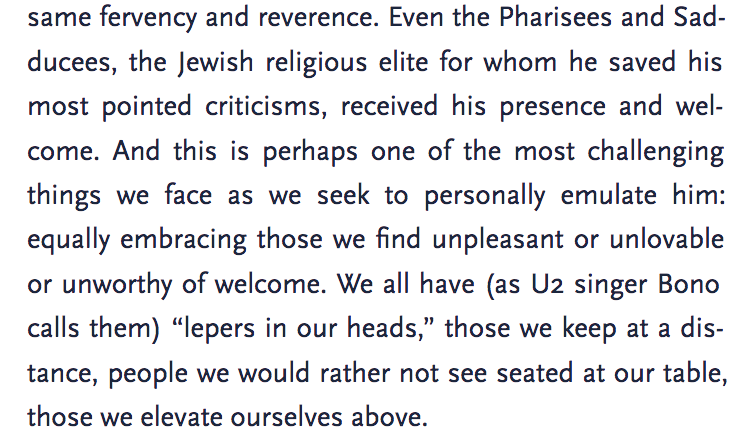And, at least in the progressive spiritual communities I interact with (my own Jewish community and our neighboring Methodist & Unitarian communities)...
Going to talk about all of that when I've read more because there are some interesting insights.
Now for the rant I have to get out of the way.
But this isn't going to get out of my brain until I talk about it.
Start here:
and heh, as I look at it, the rabbi is actually responding to John Pavlovitz in this tweet, and he doesn't look like he responds, so, yeah, so much for caring about compassion and a bigger table.
On to what I'm actually talking about.
So I'm reading the book and I get, I dunno, 25 or so pages in and get this.

I mean, everything about it is ahistorical, too. But cool. Cool.
Equating Pharisees and Sadducees, check.
And oh, boy, they're "unpleasant and unlovable."
(Prior to this there was actually another reference to Jews, but I'll come back to that one.)



It has *never* been Jewish theology that Gentiles are outside divine blessing or love. There was literally a *court of the Gentiles* in the Temple, and Gentiles were welcome to worship with Jews without converting.

"Contaminated" like Ephraim and Manasseh, with their Egyptian mother? Like Isaac with his convert parents? Like Jacob with his convert mother? Like the founders of the 12 tribes, with their convert moms?
Like Moses's kids?


And the way he talks about modern-day Jews is... well, the best I can say about it is he only does it twice.
Buddy, Reform Judaism--you know, the branch representing *the majority of practicing American Jews*--has been WAY ahead of pretty much every major type of Christianity in LGBT inclusion, but keep feeling good that you managed to catch up w the Orthodox

Who are Unitarian, not Christian.
Not, y'know, their blood.




